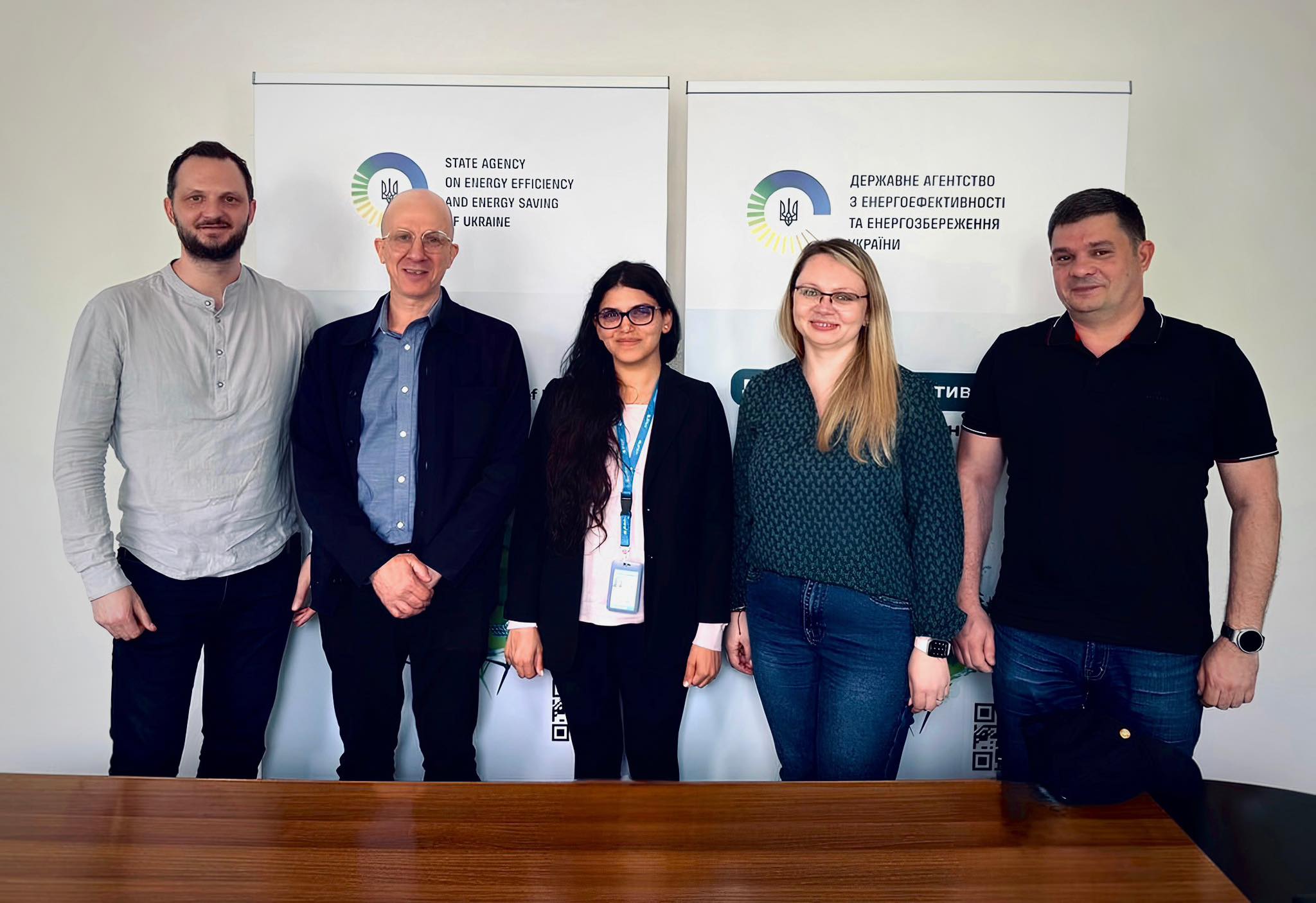Joint Efforts for the Energy Resilience of Water Utilities in Ukraine: SAEE Held a Working Meeting with UNICEF Representatives

The leadership of the State Agency on Energy Efficiency and Energy Saving of Ukraine (SAEE) held a working meeting with representatives of UNICEF. The main focus of the discussion was the integration of renewable energy sources into water infrastructure to strengthen the energy resilience of Ukrainian communities.
“Water utilities account for about 3% of Ukraine’s total energy consumption. Today, amid ongoing attacks on critical infrastructure, integrating renewable energy into water supply systems is not only a matter of energy security but also a necessary step toward sustainable community development. At the same time, water utilities have significant potential to improve energy efficiency, which would allow them to optimize energy consumption — a crucial measure under current energy challenges and resource shortages,” emphasized Viktor Bilko, Deputy Head of SAEE, during the discussion.
The meeting participants focused on the technical capabilities, economic feasibility, and key aspects of integrating solar energy into water supply systems. Among the main benefits highlighted were reduced energy costs, increased autonomy of facilities, and the ability to maintain uninterrupted water supply even during prolonged power outages.
A separate emphasis was placed on financial mechanisms to support green projects. Olesia Mishchenko, Head of the Ukrainian Decarbonization Fund (a Joint Stock Company), presented mechanisms such as concessional lending and leasing that enable Ukrainian communities and businesses to implement energy-efficient solutions.
Thanks to these tools, between September 2024 and April 2025, the Fund has already supported the implementation of 32 projects across various sectors and regions of Ukraine. All initiatives aim to enhance energy efficiency, increase the share of renewable energy use, and reduce carbon emissions.
UNICEF representatives, including Nicolas Osbert, Head of the Water, Sanitation, and Hygiene (WASH) Program, and water and sanitation expert Andriy Pavlenko, presented findings from their own research and provided recommendations for the use of solar energy in the restoration and enhancement of water utilities’ resilience.
The parties discussed the potential launch of pilot projects with the support of the Ukrainian Decarbonization Fund. Today, integrating renewable energy into critical infrastructure is a key opportunity to significantly boost the resilience of Ukrainian communities — both during the war and in the process of rebuilding the country.
We are grateful to our international partners at UNICEF for their ongoing and systematic support of one of the most vital sectors. We believe that the implementation of renewable energy will become a cornerstone in the recovery and revival of Ukrainian communities.